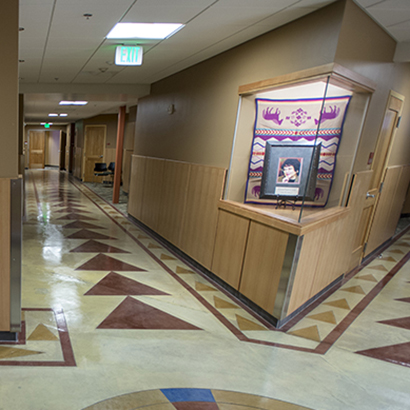Message from the Director
During her lifetime, Elouise Pepion Cobell was a passionate champion of Native American rights, inspiring the next generation of advocates to fight for the rights of minoritized communities. Founded on this legacy, the Elouise Cobell Land and Culture Institute is dedicated to facilitating scholarship, scientific research, and experience-based learning, as well as cutting-edge technology and interdisciplinary knowledge to support the empowerment and resilience of Indigenous Peoples.

Faculty, researchers, and students at the Institute are trained in indigenous studies, geospatial analytics, environmental data science, computational social science, digital humanities, and cultural and language preservation to generate insights into cutting-edge Information Technologies for advancing land and culture research, support Native research that expands understanding of complex human-environment systems; and provide the UM community with scientific capacity to address contemporary Native American issues.
The Institute also seeks to nurture partnerships with Tribes, government agencies, the private sector, and community organizations to incorporate Native values into management and policymaking, integrate Indigenous requirements into emergent technologies, and build capacity among present and future generations of problem solvers. Joint ventures include business and economic development partners, which generate opportunities to collaboratively develop solutions that respond to the needs of Indigenous communities.
To conclude, the Elouise Cobell Land and Culture Institute seeks to perpetuate the vision of Elouise Cobell for a just and equitable world by contributing scholarship on adaptive strategies to build resilient and sustainable systems against the current challenges faced by Indigenous Peoples.
Fernando Sanchez, PhD
Director, Elouise Cobell Land and Culture Institute
Assistant Professor, Department of Native American Studies
Assistant Professor, Department of Environmental Studies
